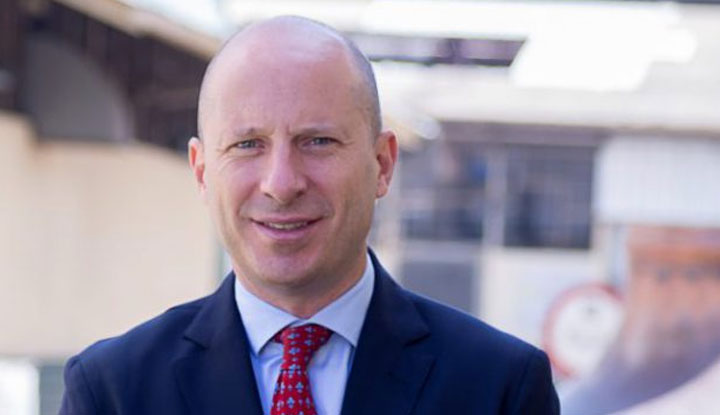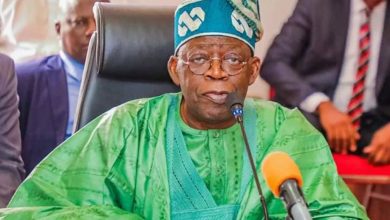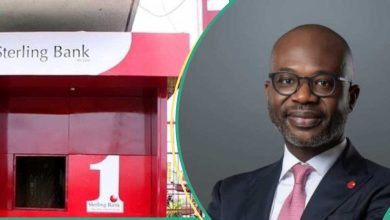SURVIVAL BATTLE OF NIGERIAN BREWERIES

This is not the best of times for the chief executive of the brewer of Heineken and other brands, Jordi Borrut Bel . Gone are the days when Nigerian Breweries Plc ,NB PLC , reigned supreme, bestriding the Nigeria corporate world like a rock Gibraltar ; not only in its industry but in entire economy , it was a synonym of a powerful ,strong ,influential and reliable company . Today , it is a different story entirely ; in what looks like a twist of fate, since its current CEO took over the mantle of leadership , NB PLC is gradually s becoming a laggard struggling for survival .
The above view may not be farfetched. Nigerian Breweries is losing its market value seismically as it is failing to create expected appreciable values it pledges to deliver .
Nigerian Breweries’ problem is partly a sector- wide phenomenon . The food and beverage sub sector of the economy is currently caught up in the reality of changing business lifecycles ; the fortunes of majority of the players in the sector are , no doubt , in dire strait ; herculean tasks of stagnant growth, declining margins and falling market share have become their hallmarks with their financial statements showing streamlined market share ,reduced profits and a tendency to be trapped in debt quagmire .
In the first quarter of 2017 its market value or capitalization stood at N1.037 trillion, but last week it was N459.8B. Within the same period its stock price per share was N129.70, last week it was N59. This is the perception and judgment of the market against the erstwhile market giant. Is the market in any way cruel in its judgment towards it ? Not in any way.
The company earning power has nosedived dangerously and its returns on investment are ridiculous too. The impact of the declining fortunes in the company is directly felt by shareholders as earnings per share (EPS) has witnessed heavy dropping in the last three years. EPS, which stood at 413 kobo in 2017, dropped to 243 kobo in 2018 , 201 kobo in 2019.and in 2020 just 92k . Shareholders have lost more than 200 percent in share value in the last three years. Analysis of return on equity (RoE), which tracks return on shareholders’ fund, suggests that shareholders’ fortune is at risk. . In 2020 , Nigerian Breweries return on equity ,return on capital employed and net margins stood at 4.48% ,3.62% and 2.18% respectively . At the end of the 2017 financial year, about N19 of every N100 income of the company was set aside for shareholders. But the figure dropped to N12 per N100 in 2018 and it dropped to less than N10 per N100 in 2019. In 2020 , it was 4.60 per N100.00. .
Despite its very low share price analysts still believe it is overvalued by 116.8% putting its fair value N26.53k against its current market value of 57.50K Its price to book ratio shows its stock is changing hands at a very high discount rate
Although it has a high quality earnings , its current net profit margins stands poorly at 2.6% which are lower than last year 4.2% .Its earnings trend shows its earnings have declined by 27% over the past five years and had negative earnings growth over the past year . It had 30 % negative earnings over the past year compared to the beverage industry average of -27.2%
The return on capital employed for the company was 13.0% last year against the industry 22% . Also ,its short term assets of 95.7billions do not cover its short term liabilities of 2057billions , indicating it is finding difficult to settle its short term bills .However , short term assets exceed its long term liabilities of 70.9billions meaning in the long term bills could be settled with ease
Although ,its debt to equity ratio of 22% is considered satisfactory ,its debt to equity ratio increasedfrom11.4% to 22%over the past 5years . However its debt is well covered by operating cash flow of 267.1% while its interest payments on its debt are not well covered by EBIT
Its current dividend yield is 1.6% . This yield is not notable compared to the bottom25% of dividend payers in the market of 3.8 % ; it is also low compared to the top 25% of dividend payers in the market of 8..7% . However one good thing about Nigerian Breweries is that it is paying a notable dividend for the market with a whooping 79% as dividend payout .
Nigerian Breweries is in the real battle of survival. A detailed analysis of its 2020 relative to its few years performances confirmed the above assertion . Its revenue in 2020 improved 4.35% from N323 billion in 2019 to N337billion . This is impressive considering the fall in consumer spending due to the COVID-19 lockdown in 2020. In the preceding years , it was the other way round
However, its 2020 fortunes were consumed by its whooping costs and debts despite the management strategic move to minimize costs . NB plc achieved this improved sales with higher Cost of Sales growth ; its cost of goods inched up 13.9% fromN191.8billions in 2019 to N 218.4 billion in 2020 .
In 2020 ,the company lowered operating expenses . However ,the reduction was not enough to salvage the disruption caused by the raging interest expense following increased charges paid on bank loans and overdraft facilities as well as the significant increase in overall debt. Beyond rising material costs confronting the company , borrowing costs have been huge and the annual interest payment by virtue of these loans make the possibility of higher profits for the company a mirage.
Between 2019 and 2020 alone, long term loans and borrowings increased by 974% from N4.8 billion to as much as N51.8 billion. Even trade and other long term payables increased by 35%. The Company had also obtained Capital and Working capital finance from the BoI in 2019. It is no news that the company is involved in diversified lease arrangements . Following reclassifications made in 2019 to some of its lease assets, the 2020 asset base also witnessed significant increase in Right of Use Assets which increased by 288%% from N11.1 billion to N42.9 billion. Yet, the fact that in one year, interest expense on Lease Liabilities rose from N19.7 million in 2019 and to a whopping N4.171 billion shows that the company is taking way more debt than its books require.
The overall increase in total liabilities might not have been such a bad idea if the funds were being used to increase revenue and profits. In 2020 , Net Income for NB Plc was posted at N7.36b, a huge 54% fall from 2019 figures. NB Plc has seen negative Net Income figures since 2018 and posted negative Total Revenues numbers for two out of the last three years since 2018.
The twist in its fortunes is negatively affecting its ability to pay its creditors too . The current ratio is a liquidity ratio that measures a company’s ability to pay short-term obligations or those due within one year. Though this ratio varies from industry to industry, between 1.5 and 3 percent are acceptable for healthy businesses. In the case of NB Plc, 0.58 percent is the best in the last four financial years. It means the company lacks the wherewithal to pay its creditors as and when due at the current rate.
The company is not also able to meet its short-term financial liabilities, going by the figures of its quick ratio in the last four years, as it falls far below the generally acceptable figure of 1, as the best it had recorded in the past four years was 0.36.This is reflected in the EPS figure of just 0.92 posted in 2020. This fall in earning has pushed the price earnings to Earnings Ratio to a high of 60.82 .
Moreover , analysts are not comfortable with a huge chunk of money in cash in its possession . Cash and bank values in its statement of financial position significantly increased by 377% from N6.4 billion in 2019 to N30.4 billion in 2020. What is shrouded in mystery is why a big cash is being held . Is the whooping cash to mitigate possible challenges of the volatile economy or are they being used to pay dividends? The negative impact is not hidden . Even at a share price of N52 per share, the company’s price-to-book value sits at 2.5816, testament of its dire overvaluation. .
The above unimpressive performance indicators over the last three years in spite of the company’s heavy potentials and competitive position have continued to raise questions against its survival and leadership savvy of its CEO . No doubt , Nigerian Breweries is not a neophyte , it is expected to benefit from its deep-seated experience in any clime ;it has what it takes to sustain its leadership in the areas that matter most . Moreover , as a dominant player that has achieved a proprietary position , NB Plc is expected to be exploiting this among the few top market leaders .All these are reflected in its high competitive positions of size and resources, image , breadth of product line ,reliability or quality and customer service advantages ; they are also expected to be driving its market dominance and leadership at any time . Nigerian breweries has nine plants across Nigeria with two malting plants .
Asides , it is well loaded with different and divergent brands of both alcoholic and non alcoholic drinks originated by itself and from its acquired companies . Following the acquisition of Sona Systems and Life Breweries in 2011, Goldberg lager, Malta Gold malt drink, and Life Continental lager, were added to the brand portfolio. Also in 2014, as a result of the merger with Consolidated Breweries Plc, “33” Export lager beer, Williams dark ale, Turbo King dark ale, More lager beer and a malt drink, Hi Malt, became part of the company’s product offering. However, most of them have turned liabilities or conduit pipes draining its resources instead of adding values .The company increased its portfolio of brands with Legend Extra Stout in 1992 ; in 2014 with the addition of two-line extensions of the Star brand – Star Lite and Star Radler. The Ace brand in the Ready-to-Drink (RtD) category was launched in 2015 while Tiger lager beer was added to the portfolio of brands in 2018 . Among its cash cows in the brand portfolio of NB Plc are Star lager beer launched in 1949, Gulder lager beer in 1970. Maltina was in 1976 and another malt drink, Amstel Malta in 1994. Heineken lager beer was re-launched into the Nigerian market in 1998. Fayrouz, the premium non-alcoholic soft drink, was launched in 2006 while Climax herbal energy drink was launched in 2010.
The company has an export business, which dates back to 1986. The current export destinations are the United Kingdom, the Netherlands, the United States of America, Canada, some parts of Africa and parts of the Middle East and Asia. Over the years, NB Plc has establishment ancillary businesses in Nigeria. These include manufacturers of bottles, cans, crown corks, labels, cartons, and plastic crates as well as service providers including those in the hospitality sector, distribution, transport, event management, advertising, and marketing communication .
However , analysts are quick to caution that a company or firm should not be viewed as a bundle of resources but of competencies . The reason is not far to seek . Just as bigness without stretch and leverage is obesity, smallness without stretch and leverage is impotence. The management of Nigerian Breweries should accept t its blame .Top management must not seek to escape its culpability for the carnage caused when it fails to anticipate and shape the future of its industry. Likewise, no one with a social conscience can be unmoved by the plight of those who’ve paid the enormous personal costs for a company’s lack of industry foresight ; entrepreneurial fervor is not always enough to crack open a new opportunity. Of course, size is an advantage only when there’s a stretching aspiration that engenders great creativity in the use of the firm’s resource endowment.
The trouble with Nigerian Breweries despite its heavy potentials might be poor leverage of its portfolio . Although , changing macroeconomic environment and biting economic headwinds were responsible for large scale corporate downturns in recent years , the management should be blamed for lack of tactical and timely creativity . Top management of Nigerian Breweries has some questions to answer: are its products and business portfolio mix reflecting balance and attractiveness in terms of how profitable they are and how fast they are growing ; do they have high degree of synergies or as a corporate parent ,is the management good at looking at them? . Another issue that could curtail its market share or power is whether its products and businesses are strategically positioned to target different market segments to achieve one benefit or the other to boost its earnings and achieve market power . Its should reanalyze its pricing and marketing strategies and know if they are strong enough to beat its rivals and to deliver market power . Some analysts believe its product and business portfolio mix is a duplication of similar products maintained dead or alive even when they are not in any way acceptable to consumers. Its legend extra stout is believed to be long overdue for deletion .
Just as necessity begets invention, stretch begets resource leverage , tactical creativity ,a child of resource scarcity is what the management needs . The company is expected to target its resource leverage in the areas that make the most difference to customers. Also its capacity to mine ideas for improvement and innovation from each and every incremental experience is a critical component of resource leverage needed by this player .
The above initiatives will surely sharpen its competitive edge . This is necessary to confront the current change of competitive dynamics against it mostly from unconventional players . . When a company fails to adapt to a radically changing environment it becomes a dinosaur .Dinosaurs are usually threatened by cataclysmic climatic changes when they are unable or find it impossible to cope with a radically altered environment. This because they are unable to adapt fast enough to the changing conditions. Any company that fails to reengineer its generic coding periodically will be as much at the mercy of environmental upheaval
Nigerian Breweries must unlearn its past by failing to live in its past to be competitive.and recapture its past glory . The fact is that food and d and beverage used to be attractive industries with above-average profitability . They were attractive because they are surrounded by sizable entry barriers like scale and scope economies, government regulation and research intensity that keep new entrants out ; firms operating in this industry could be assumed to possess competitive advantages that are not easily imitated. The only avenues open to a firm confronting the insurmountable barriers to entry surrounding them are to redraw industry boundaries so that what is now attractive lies outside the former barriers . This is what has happened ; the market dynamics are changing fast with some unconventional players hotly challenging the orthodoxy . This picture has since changed as Anheuser-Busch In Bev (AB InBev), the world’s largest beer producer, entered Nigeria in 2016 as International Breweries.
The barriers are seem to be broken now by unconventional players . Currently , new ma rket and industry dynamics have reshaped competitive powers putting the old market leaders in tight corners .Just as bigness without stretch and leverage is obesity, smallness without stretch and leverage is impotence. .Ability and capacity to leverage resources to achieve more for less remains the ultimate joker of survival .
The current fate of this company could be situated squarely on miserable and bleak socio economic and political environment that has grounded many economic agents in the past few years. In 2020 financial year , unfavorable macroeconomic and socio political environment led to increase in the prices of raw materials and disruptions in logistics for many business operators. This is compounded by fall in consumers due to poor purchasing power hitting the players hard .
The management of Nigerian Breweries is no doubt out of its slumber . Nigerian Breweries is currently redefining of its served market in terms of its margin structure ,finding much more efficient way to deliver a particular products and services to improve its profit engine. It has announced its plan to delist brands that are not performing well and be more focused on regions that bring in more sales and growth going forward.
According to the chief executive of the brewer of Heineken and other brands, Jordi Borrut Bel at a pre-AGM briefing on Wednesday, the company wants to “do better in our operating income and profit in the years ahead.”Bel also said the company will review its cost to ensure that every naira counts going forward.He said in 2020, the financial results of the company were adversely impacted by Covid-19, increase in the Value Added Tax (VAT) rate, forex devaluation and scarcity of dollars, which affected timely payment of the brewer’s foreign suppliers.“For 2021, we will strive to sustain the performance of the second half of 2020, driving premiumisation and growth.
“However, we still expect a challenging operating environment with devaluation, forex scarcity, inflation and affordability. “The capability of our people, focus on our consumers combined with commercial agility and position for growth gives us confidence that we will a continue wining with Nigeria,” Bel said. Even some cash cows in its portfolio are currently facing serious challenges from its unconventional rivals . .
What the company seems to saying now is that any product that is not achieving the expected fit between the business units critical success factors and the parent skills ,resources and competencies as well as between business unit parenting opportunities and the parent skills and competencies must be discarded. The problem is that the expected transfer of resource, capabilities and competencies is not seen to be adding value for either lack of relatedness or the management inability to manage their interactions of businesses
Will the new move of NB Plc rescue it from a potential distress lane ? Buffeted by above forces only few are seem to be in control of their own destiny. The foundation of the past have shaken and fractured because the industrial terrain changed shape faster than the top management could refashion its basic beliefs and assumptions which markets to serve ,which technologies to master ,which customers to serve and how to get the best out of employees. When there is a discrepancy between the change in the pace of industry environment and pace of change in the internal environment that brings out or spawn the daunting task of organization transformation , only those with a drive strategic leverage could survive .
Auditing product and business portfolio is a corollary of restructuring . When the above become inescapable most executives pick up the knife and begin the brutal work of restructuring. And the goal is to carve away layers of corporate fat ,jettison underperforming businesses and raise the asset productivity.. However , those executives who don’t find room for emergency surgery may loose their jobs. Even when they retain their jobs , this strategy doesn’t make their companies an industry leader .
Only those players with better strategic foresight and competencies to shape industry evolution will survive the challenges of the new dynamics . Most those facing this critical challenge of maintaining their market share and power prefer the former strategy trying to protect their past instead of creating a future . To meet up with the above challenges most of the players in this sub sector have ,at one time or the other embarked on downsizing , engaged in overhead reduction, employee empowerment, process redesign and portfolio rationalization. The reason behind this may not be far to seek Any company that is bystander and not a driver on the road to the future will find its structure, values and skills becoming progressively less attuned to an ever changing industry reality . The available joker in the hands of the key the players is price cutting which can only be delivered by productivity improvements using cost reducing as differentiator . But they were seemed to be boxed to tight corners as prices cannot be cut forever.
It may be advisable for the management of the Nigerian Breweries to vacate from any unnecessary diversification too , even within its value system ,that has turned a conduit pipe for it hard earned fortunes for stability and competitiveness in its core businesses . To some observers and analysts , its forward and backward integrations as well as its activities which are either competitive or complementary to its current activities are merely diversionary . Just as necessity begets invention, stretch begets resource leverage . Tactical creativity is the child of resource scarcity and that is what the management needs .
Resources are leveraged when they are targeted in the areas that make the most difference to customers. The capacity to mine ideas for improvement and innovation from each and every incremental experience is a critical component of resource leverage needed by this player .
Unless this company is equipped powerfully by the power of foresight that delivers prescience needed to proactively shape the industry evolution , to establish its company as the intellectual leader in terms of influence over the direction and shape of industry transformation that gives a company the potential to get to the future first and stake out a leadership position that informs new corporate direction it will be difficult to control the evolution of its industry and thereby its destiny . Industry foresight is based on deep insights into the trends in technology, demographics, regulation, and lifestyles that can be harnessed to rewrite industry rules and create competitive space is essential for a rebirth of Nigerian Breweries not mere product and business restructuring . .
.







